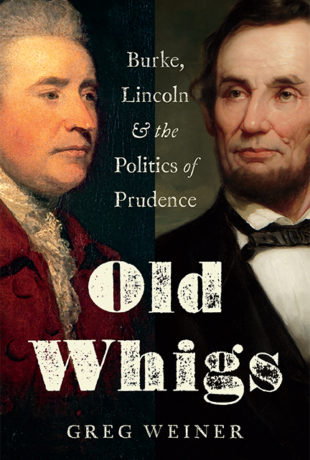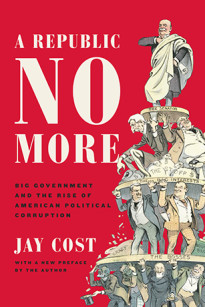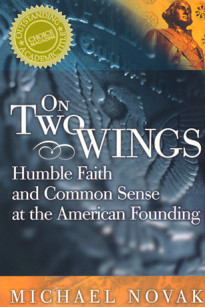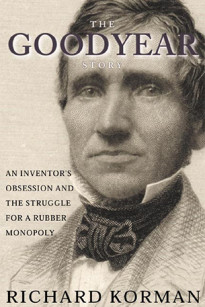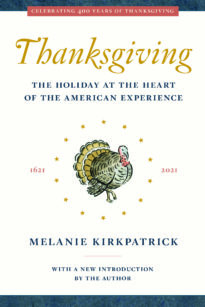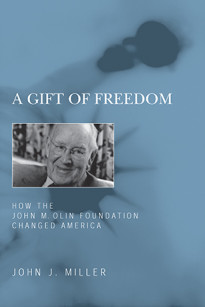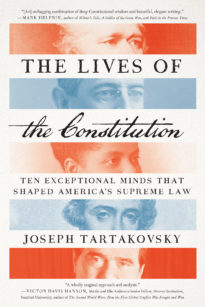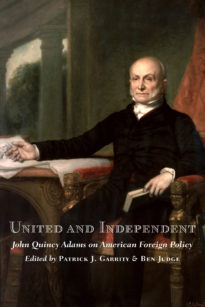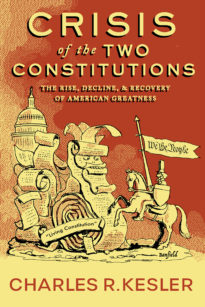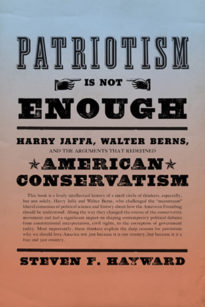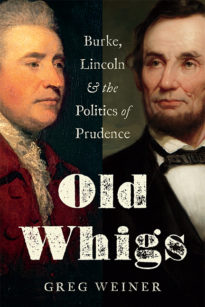Edmund Burke was convinced the Jacobins were coming for his bones. He had been unrelenting in his opposition to the French Revolution, resisting peace talks with the Directory even when its march across Europe and, perhaps, the sceptered isle itself seemed inexorable. By the time of his death, Burke, seeing Jacobinism victorious abroad and teeming at home, had asked to be buried in an unmarked grave lest the revolutionaries desecrate his remains. His resting place is unknown to this day. The great modern theorist of prudence had, if we interpret the term simplistically, been singularly imprudent—which is to say incautious—in this as in other projects: defending the rights of the American colonists; his similarly controversial advocacy on behalf of Irish Catholics; his years long and doomed prosecution of Warren Hastings, the brutal and corrupt governor-general of India.
Abraham Lincoln, too, spurned caution insofar as we understand that term to mean a disposition to surrender to long odds. He insisted on union, believing in victory even after calamities early in the Civil War made it seem untenable. He refused to suspend the 1864 presidential election even when, as late as August of that year, it appeared he would lose and the White House would fall to the accommodationist Democrat and spurned general George B. McClellan. Even in the moment of triumph, Lincoln’s Second Inaugural declared that North and South shared blame for the torrents of blood.
Yet both Burke and Lincoln, this study argues, are best understood as prudent statesmen. In the entire political lexicon, perhaps no term is deployed at a higher ratio of use to understanding. President George H. W. Bush was pilloried for his frequent refrain that a course of action “wouldn’t be prudent.” The term connotes caution, to the point of timidity to some and cowardice to others. Yet this is to misunderstand prudence as a classical virtue, one for whose recovery contemporary politics aches. Genuine prudence entails what Burke called “a moral rather than a complexional timidity.” Prudence is cautious not out of fear—what he also called “a false, reptile prudence”—but rather from a moral commitment to the limits of individual reason. At the same time, there are moments when prudence demands bold action and unbending tenacity. The key to prudence is knowing the difference, having the capacity of judgment that can distinguish between ordinary moments and genuine crises and, in either case, calibrating action to proper goals.
Burke and Lincoln are odd partners in such a conversation even if, as the Burke scholar Jesse Norman argues, Lincoln’s leadership was “Burkean through and through.” There is no evidence that Lincoln read Burke or was influenced by him—Norman notes that there is, by contrast, ample evidence that Lincoln read Burke’s rival Thomas Paine—and the word “prudence” appears only a handful of times in Lincoln’s writings. Even then, he generally associated it with caution, as in his first annual message to Congress in December 1861, when he said he had enforced confiscation laws according to “the dictates of prudence, as well as the obligations of law. . . . ” While both men climbed from modest circumstances to the heights of statesmanship, Burke cut an elegant rhetorical path through some of the greatest controversies of his day. What Burke said of Marie Antoinette—that she hardly seemed to touch the earth—might be said of his prose. Lincoln, by contrast, was a rough-hewn backwoods lawyer whose mature rhetoric, while eloquent, is characterized by an unmistakable heaviness. Burke was a famed skeptic of the French dogma of universal human rights; Lincoln, like Burke an opponent of slavery, spoke frequently in the idiom of equality and liberty.
Yet there is an intriguing connection. Burke and Lincoln both described themselves as “old Whigs,” a reference in Burke’s case to the party that opposed the power of the royal court in favor of Parliament and in Lincoln’s to the party that stood against the populist demagoguery of President Andrew Jackson. There are many differences between the British and American Whig experiences, but prudence links them. Burke wrote in his Appeal from the New to the Old Whigs that “they who go with the principles of the ancient Whigs, which are those contained in [Reflections on the Revolution in France], never can go too far. . . . The opinions maintained in that book never can lead to an extreme, because their foundation is laid in an opposition to extremes.” In his 1854 Peoria Address, Lincoln sought to correct Whigs who feared being cast as radicals if they supported restoring the Missouri Compromise. “Will they allow me as an old whig to tell them good humoredly, that I think this is very silly? Stand with anybody that stands RIGHT. Stand with him while he is right and PART with him when he goes wrong. . . . In both cases you oppose the dangerous extremes.”
In his The Ethics of Rhetoric, Richard Weaver, who places Burke and Lincoln in a conversation about methods of rhetorical reasoning, also notices this connection, but chiefly by way of criticism of Burke. For Weaver, Whiggism in both the British and American experiences was defined by opposition and circumstantial reasoning rather than innate principle. Lincoln, Weaver claims, had to leave the aimless Whig Party and join the principled Republicans for his greatness to emerge. But this is to mistake the status of prudence as a virtue and the rooting, for both men, of moderation in moral soil. Both British and American Whigs were principled, most obviously in their opposition to executive power. But prudence is also a principle, as is circumstantial reasoning. Both are based on the objectively moral idea that there are limits to human reason.
Placing the reflections of these “Old Whigs” in relief thus helps to illuminate prudence in its full dimensions: inflected with caution but not confined to it, bound to circumstances, and finding expression in the particular yet grounded in the absolute. These dimensions point toward a recovery of prudence as the political virtue par excellence. Today is an era of American, perhaps of global, politics in which all positions are stated in extremes, even when they are crafted in moderation. All conflicts seem ultimate, every election a choice between redemption and doom. Some issues are ultimate, of course, and there are likewise forks in historical roads at which one path leads to constitutional health and the other to national calamity. These are rare, they require resolve, and even as prudence counsels us to beware the rhetoric of catastrophe, it demands that we recognize emergencies when we confront them.
But exigencies must be addressed, and moral absolutes pursued, prudently too. Burke’s warning that “moderation will be stigmatized as the virtue of cowards; and compromise as the prudence of traitors” is a prophecy for our time, and neither party is immune. We fear tolerating enemies either to the left or the right precisely because we lack prudence. That is not to endorse a geographic or geometrical centrism according to which political virtue lies evenly between whatever the partisan edges happen to be at a given time. Burke’s moderation was anchored in moral soil and intellectual humility. Prudence refuses to believe that any individual at any moment has discovered the solutions to all political problems. Such confidence in reason is the road to utopian disaster: the essence of Jacobinism. Moderation was an absolute in a dual sense: The necessity for it arose from a morally objective humility as well as an intellectual recognition of the variability of circumstances, and the use of it was invariably in pursuit of morally objective ends.
So it was for Lincoln. He experimented with scheme after scheme for gradual and compensated emancipation before issuing his famous proclamation in the face of military necessity. His much-misunderstood opposition to the Kansas-Nebraska Act was not merely the product of moral revulsion at the expansion of slavery—a topic on which he meticulously sought to elevate public opinion over time—but also political caution about repealing the Missouri Compromise as a compromise. If this great measure was repealed, no one would ever trust in such a mechanism of accommodation and moderation again. If the Kansas-Nebraska Act stood, Lincoln declared at Peoria, “we shall have repudiated—discarded from the councils of the Nation—the SPIRIT OF COMPROMISE; for who after this will ever trust a national compromise? The spirit of mutual concession—that spirit which first gave us the constitution, and which has thrice saved the Union—we shall have strangled and cast from us forever.”
This is prudent accommodation, embraced not from fear but rather for principle. The risk is that prudence becomes tautological, a proposition that cannot be refuted: The right course is prudent, the wrong imprudent; boldness is prudent when boldness is required, caution is prudent in more appropriately cautious circumstances. The issue is complicated by the clarity of retrospection, made all the more ironic because foresight is so characteristic of prudence. But it is inescapably easier to see Lincoln’s prudence a century and a half after the Union triumph than it was in the morose days following Bull Run. Similarly, the Terror eventually vindicated Burke’s early warnings about where the French Revolution was headed, but the courage required for a Whig to oppose rebellion against an absolute crown immediately upon the Bastille’s fall was immense. Yet retrospection may be the quality prudence values most: We discover and instantiate objective values in the theater of history, where principle plays out on the stage of infinitely variable circumstance. Burke wrote in his Thoughts on the Cause of the Present Discontents that “retrospective wisdom, and historical patriotism, are things of wonderful convenience, and serve admirably to reconcile the old quarrel between speculation and practice.”
A similar risk inheres in imputing a mystical character to prudence, reducing it to a quality of intuition and judgment that some statesmen innately possess and others lack. There is some of that, to be sure: Certain dispositions are more given to prudence than others, and some actors on the public stage have an uncanny capacity to intuit the unfolding of events. But leaving prudence to such contingencies is itself imprudent. Prudence is more art than science. One of Burke’s central teachings is that politics cannot be reduced to arithmetic or geometrical precision, while one of the aspects of Lincoln’s political genius was his ability to mask—perhaps to ground—his capacity of judgment, informed by a study of history, in the guise of a country bumpkin lawyer. Yet that does not mean the quality of judgment cannot be cultivated and encouraged, especially if we make an active effort to understand what prudence means and, crucially, if we do so not in the abstract but rather through the eyes of two of its exemplars.
What we shall see in the pages that follow is that prudence involves a carefully choreographed dance between principle and circumstance, what Burke called “a moral prudence and discretion, the general principles of which never vary. . . . ” Principle is the end according to which prudence decides on its courses. Burke thus wrote to Dr. William Markham in 1771 that he had not learned principles from history, but he had learned prudence—how to attain principles—from it. “My principles enable me to form my judgment upon Men and Actions in History, just as they do in current life; and are not formed out of events and Characters, either present or past. History is a preceptor of Prudence not of principles.” Significantly, he explained in his 1793 “Remarks on the Policy of the Allies with Respect to France,” history “improve[d] the understanding, by showing both men and affairs in a great variety of views. From this source much political wisdom may be learned,—that is, may be learned as habit, not as precept.” His specific meaning was that history did not furnish casuistic “cases and precedents for a lawyer.” It could inculcate prudence as a disposition and capacity for judgment, not provide debating points for rhetoricians.
